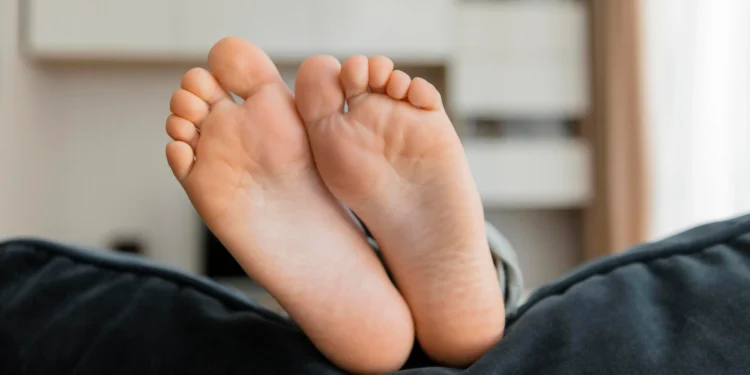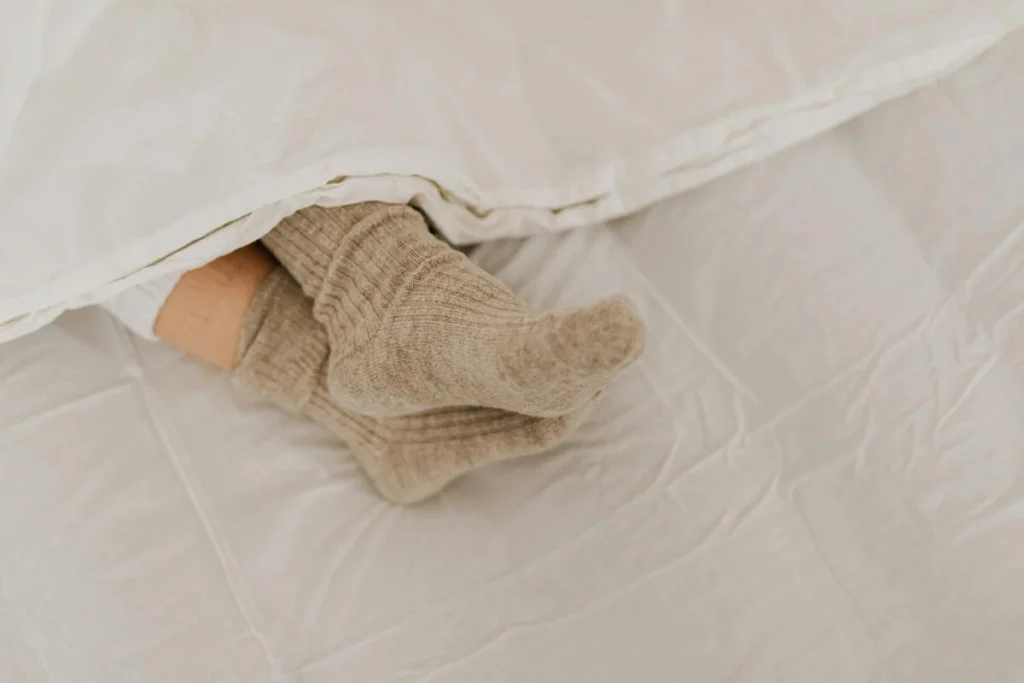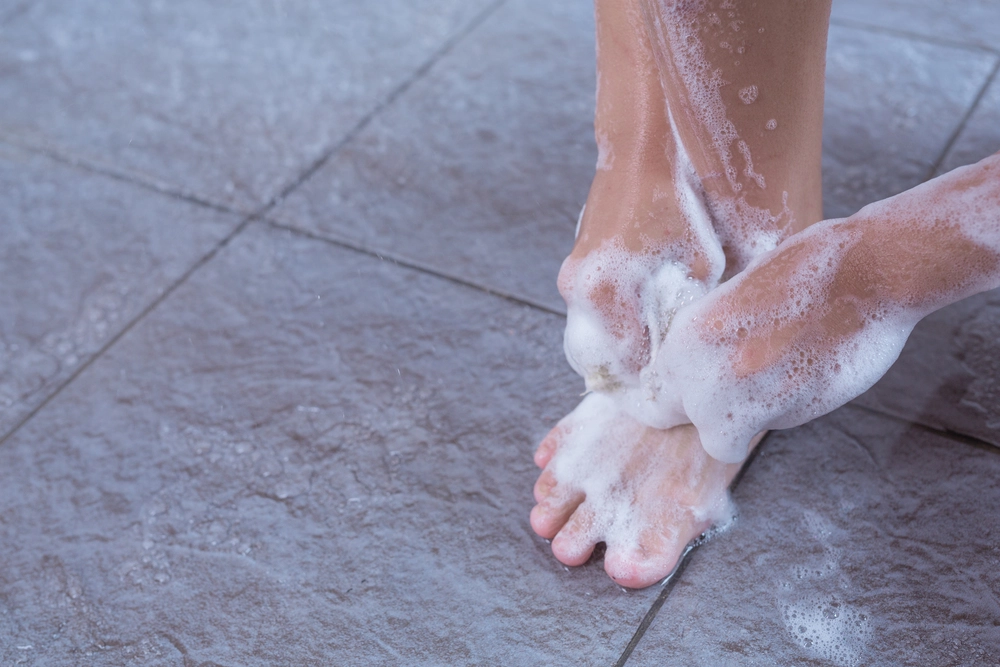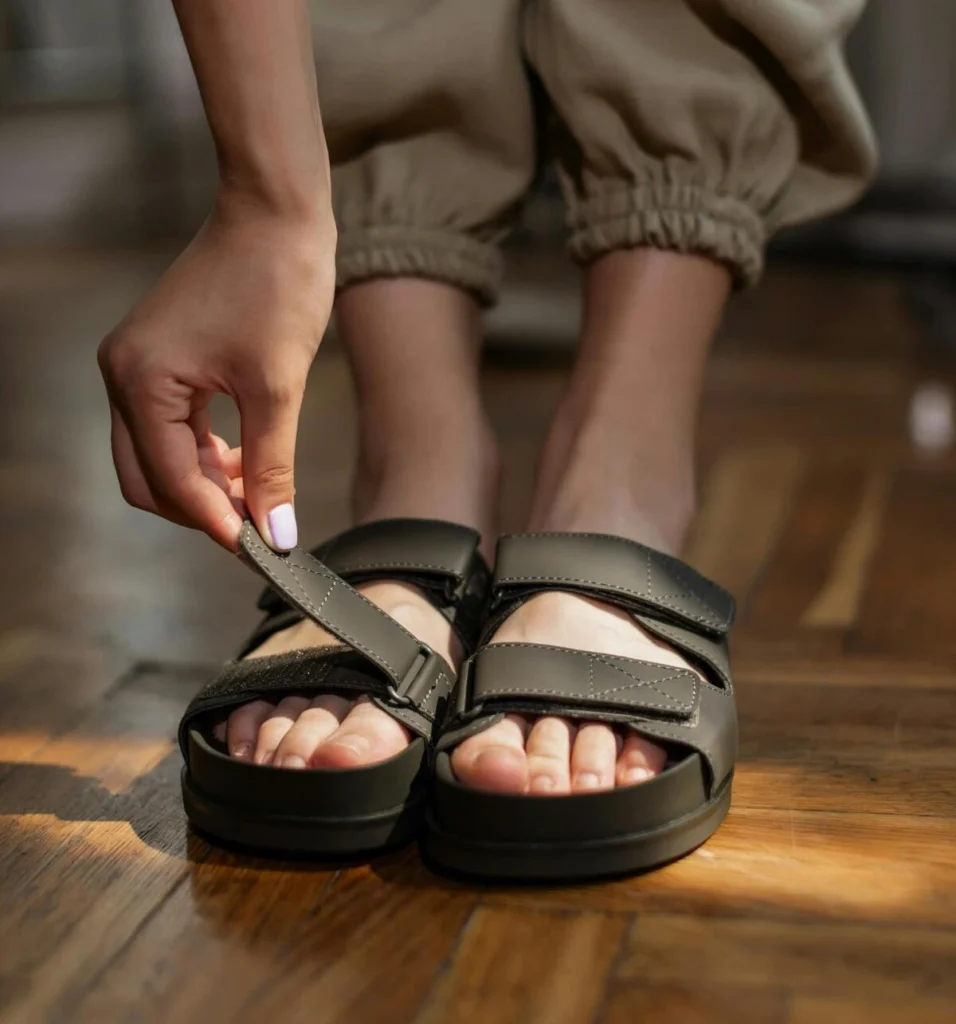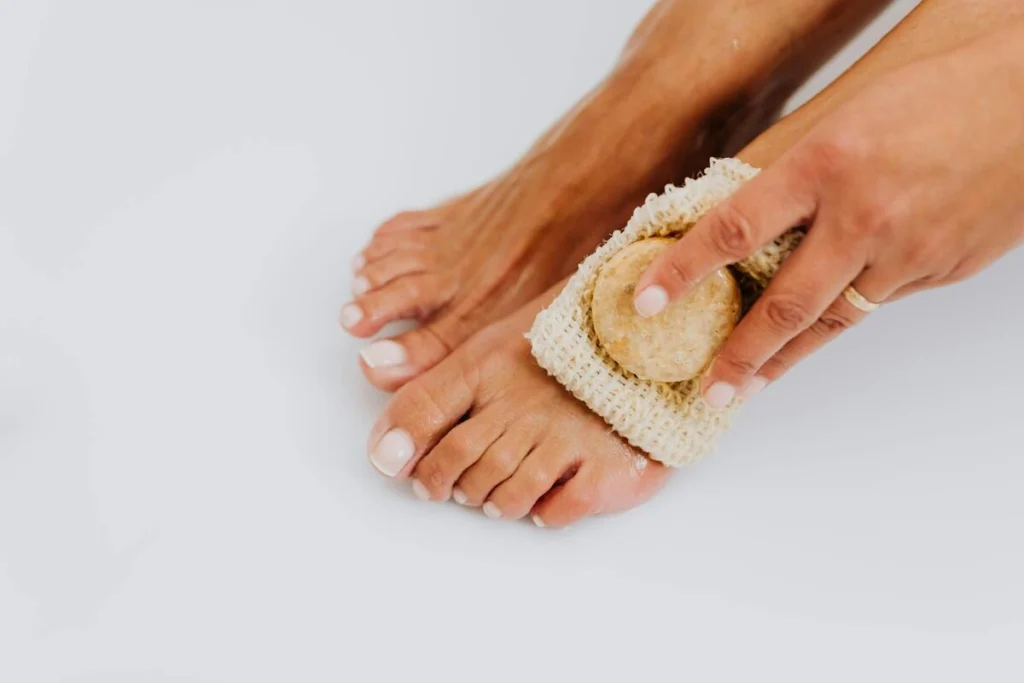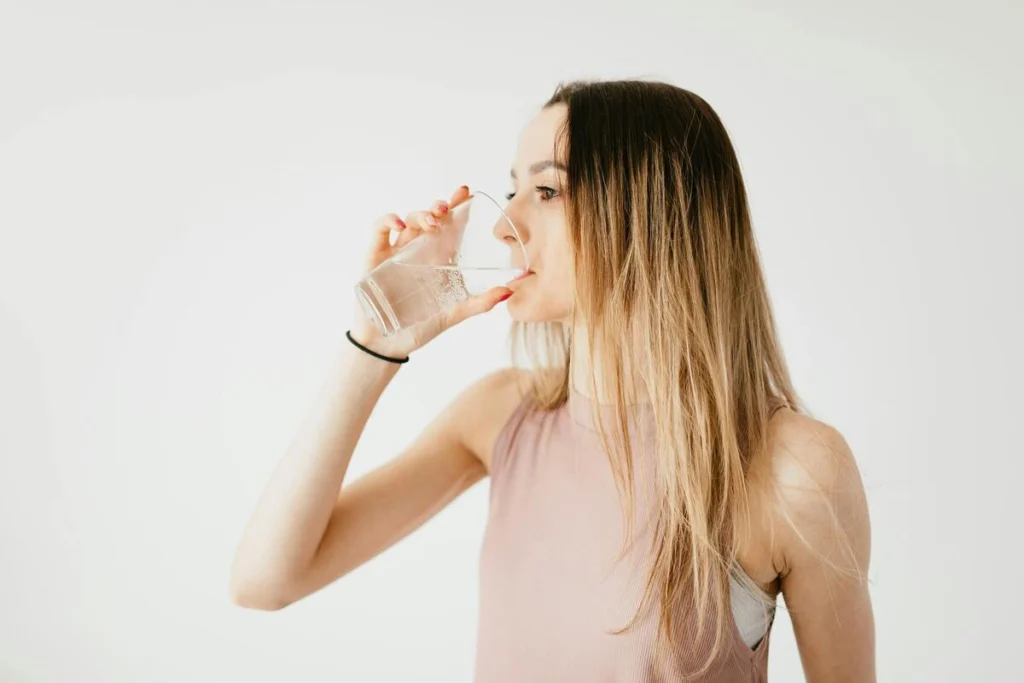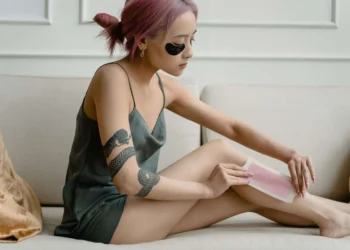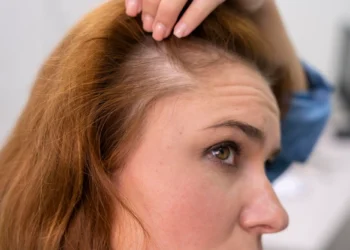Sweaty feet, or plantar hyperhidrosis, can be an embarrassing condition that affects many people. Excessive moisture in the feet usually causes discomfort, odour and even seepage on socks and shoes. This can make social interactions or activities that require taking off shoes uncomfortable. Even if the feet are damp, it will sometimes lead to skin issues such as blisters or fungal infections which add to the angst. Fortunately, there are many simple ways to maintain dry, fresh, and smell-free feet. This is a complete list of sweaty feet prevention strategies divided into useful techniques.
Table of Contents
1. Choose Breathable, Moisture-Wicking Socks
When you are trying to stay away from scaly feet, socks are essential. Wicking socks are often made from cotton, bamboo, or wool blends that absorb and expel sweat better than synthetic fabrics. Here are some options for socks:
- Cotton and Bamboo Socks: Natural materials such as cotton and bamboo retain moisture, keeping your feet dry.
- Wool Blend Socks: Wool blends are very good at wicking away moisture, especially in the colder months.
- Specialized Moisture-Wicking Socks: Some socks are specially formulated for those with wet feet and are made from synthetic fabrics that wick moisture away from the skin, like polyester or coated nylon.
2. Opt for Breathable Shoes
Having good footwear is essential in keeping your feet dry. Breathable shoes circulate air around your feet, preventing the accumulation of sweat. Look for shoes that have ventilation materials:
- Leather or Canvas Shoes: These materials are natural and don’t trap the sweat of your feet.
- Mesh-lined Shoes: Mesh shoes or perforated shoes can be ventilated and are perfect for sporting activities.
- Do Not Wear Dry Materials: Avoid shoes made of rubber or plastic, as they absorb moisture, and you sweat more and smell more.
3. Use Foot Powders and Antiperspirants
Using powders and antiperspirants suited for feet can help eliminate sweat and smell. Foot powders absorb water, and antiperspirants temporarily close the sweat glands to prevent excess sweating. Some options include:
- Talcum or Cornstarch Powders: These powders absorb moisture and keep the feet dry.
- Specialized Foot Powders: A lot of over-the-counter foot powders come with additives such as zinc oxide or baking soda to neutralize odor.
- Antiperspirants for Feet: You can wear a regular antiperspirant on your feet or choose a foot product that contains aluminum chloride, a component that helps to control sweat.
Use these products on clean feet before putting on socks in the morning.
4. Change Socks Regularly
If your feet are already naturally sweaty, changing your socks at least once or twice a day will go a long way. When you replace damp socks with dry socks, you avoid the moisture build-up that causes irritation and smell. This is especially handy if you’re a busy person or spend your days standing for long periods of time.
5. Practice Good Foot Hygiene
Foot care is very important for controlling foot sweat. This not only helps to stop odour, but it also helps to prevent fungal growths, which like to live in damp conditions. Here are some great hygiene hacks:
- Clean Your Feet Everyday: Clean your feet every day with antibacterial soap and warm water. Focus on the space between your toes.
- Wash It Clearly: After washing, dry your feet thoroughly, especially between the toes, to stop germs growth.
- Soak Feet in Vinegar or Epsom Salt: Washing your feet in a solution of vinegar (1 part vinegar 2 parts water) or Epsom salt bath can also help eliminate sweat and odour.
6. Alternate Your Shoes
It can also become an issue if you are wearing the same shoes daily because they can take more than a day to dry out. To avoid this:
- Change Shoes: Wait at least a day to let your shoes air out and dry before putting them back on.
- Use Cedar Shoe Inserts: Cedar insoles or inserts will soak up moisture and prevent odour.
- Air Out After Wear: Take insoles out (if possible) and let shoes air out in a well-ventilated area, as they dry faster.
7. Try Foot Deodorizing Products
Foot deodorants, sprays and wipes can keep your feet dry and smell fresh all day. They have ingredients that kill off stink-causing bacteria and leave feet with a pleasant scent. Options include:
- Foot Deodorant Sprays: Many sprays have antifungal and antibacterial ingredients that kill odour while keeping feet dry.
- Aromatic Foot Wipes: Handy and travel-friendly, these wipes will help you clean your feet while on the go.
8. Wear Open-Toed Shoes When Possible
Wear open-toed or ventilated shoes, preferably sandals or flip-flops, when conditions and climate permit. These styles let air flow around your feet, minimizing sweating and keeping your feet dry.
9. Keep Your Feet Cool
You may sweat more on your feet in the heat so try to keep your feet cool during the day. Some easy ways to keep the heat down are:
- Avoid Overheating Shoes: Avoid heavy, insulated shoes unless necessary.
- Cool Foot Bath: Apply a cold foot bath to your feet, as it helps you to get rid of body heat and sweat.
- Ice Packs: You can put an ice pack in the soles of your feet for a few minutes on a regular basis, which can minimize sweating for a while.
10. Consider Medical Treatments
If home remedies and lifestyle changes aren’t enough to cure your foot sweating, several medical options exist:
- Botox Injections: Botox injections are FDA-approved to control excessive sweating in areas such as underarms or feet. The shots paralyze the nerves that generate sweat.
- Iontophoresis: Essentially you bathe your feet in a shallow cup of water while an invisible electric current is circulating. It helps suppress the sweat glands and it is prescribed for extreme hyperhidrosis.
- Antiperspirants: In extreme cases, a dermatologist may recommend a stronger antiperspirant that contains more aluminium chloride and is specifically designed for hyperhidrosis sufferers.
11. Monitor Your Diet
Some foods and drinks can make you sweat. If you see a relationship between certain foods and your foot sweat, try to reduce eating:
- Hot Foods: Hot foods can stimulate the nervous system to sweat.
- Coffee: Coffee will activate the sweat glands so if you reduce caffeine it may help to lower sweating.
- Alcohol: Alcohol expands the blood vessels causing you to sweat and become hotter.
12. Stay Hydrated
Notably, hydrating yourself can regulate your body temperature and prevent excess sweating. A large water intake helps keep your body cool and prevents overheating, reducing the total sweat load.
To sum up
Having wet feet isn’t fun, but if you can use any or all of these tricks you can control it. If you wear the right footwear, keep your feet clean, and adapt your lifestyle, you can minimize foot sweating and the associated discomfort and smell. For more severe sweating, seeking medical advice for specialist treatments may be helpful.
